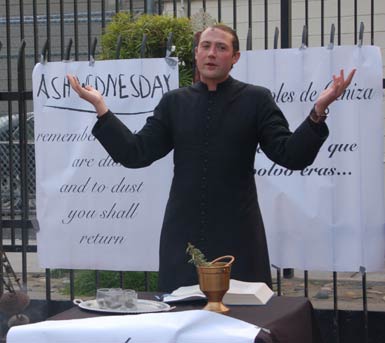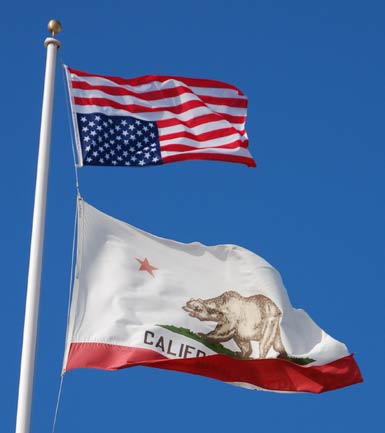
Photo: Afghan family in poppy field. Credit: Canadian Army
According to the New York Times, President Obama declared "the beginning of the end" of the U.S. war on Iraq yesterday.
That's darned unequivocal and, I for one, expect to work to hold him to it."Let me say this as plainly as I can," Mr. Obama said. "By August 31, 2010, our combat mission in Iraq will end."
He added: "I intend to remove all U.S. troops from Iraq by the end of 2011. ..."
It's Afghanistan we've got to worry about. Our shiny new President seems poised to leap into that fire. We all -- people who care about peace, about the victims of war, and about the well-being of this country -- need to do what we can to discourage him.
The last couple of posts here have been aimed at just that end. So okay, we don't think Obama should throw the U.S. further into the Afghanistan quagmire -- but what should he do?
Fortunately the folks at Peace Action West have laid out some ideas about what the U.S. should do in Afghanistan. I'm reproducing them below in abbreviated form with my comments. The Peace Action West parts are in bold; the rest is me. If we want peace, we need a grip on these issues.
1. Replace the "Global War on Terror" framework with a counterterrorism strategy based on proven methods. Terrorists are criminals, not armies at war with the United States ... Yes, yes, yes. The Bush administration inflated a real threat from a bunch of fanatical thugs into an excuse to seize unchecked power domestically and globally. If this country is to function at all benevolently for its citizens and the world, we need to roll that back and re-establish the rule of law. This won't be easy, The Obama administration has already shown itself wobbly about limiting executive law-breaking -- part of the peace movement's job is to keep demanding that they stop inflating threats to shield themselves from scrutiny.
2. Focus resources on policing and intelligence. Well, maybe. This is what a law enforcement response to terrorist criminals would suggest. It might even help, though it didn't stop the dirty bomb making guy in Maine the other day. Far too much of the state's "intelligence" operation has consisted of building up its ability to use technical means to spy on all of us all the time. Snooping has become easy and cheap. We need better police work -- and we also need strong checks against abuses.
3. Engage in robust diplomacy with stakeholders in the region. That one is a no-brainer. The U.S. will not be in Afghanistan forever; Iran, Pakistan, India and the Central Asian states will be dealing with whatever remains long after we're gone. They have far more stake than we do. Get used to it.
4. Support negotiations with elements of the Taliban. ... As Gates noted in October of 2008, "At the end of the day, that's how most wars end..." It would be more truthful to state this as "negotiate with the forces that have power on the ground, not those you wish had power." And that is the resurgent Taliban. There are many reasons for the Taliban's return: support from Pakistani security forces, the unwillingness of NATO allies to get their troops killed in America's war, Afghan disgust with the corruption in Hamid Karzai's U.S.-supported government, and above all, ongoing abuses and killings by foreign occupation troops. Do we really think we'd cozy up to a power that bombed our residences and invaded our homes? Human beings don't work that way. The Taliban have offered themselves as a lesser evil and backed the offer with the violence to prove their capacity. By becoming the alternative to occupation, they've restored their legitimacy, however little we (and many Afghans) like that. You make peace with your enemies, not your friends.
5. Strengthen and deploy non-military aid and engagement. All well and good, though harder to achieve in practice than to prescribe. Afghanistan is one of the poorest countries in the world: life expectancy is 45; only 30 percent of people over 15 are literate (less than 15 percent among women); armies have been fighting over it continuously for 30 years. At the moment, not much is getting done because aid workers (foreign and Afghan) end up dead all too often. In the aftermath of the U.S. invasion, there have been a series of exposes showing that aid projects wasted most of the available money on highly paid consultants. Donor countries have also failed to live up to their promises. Meanwhile Afghan-initiated and run projects have been slighted, or so their sponsors claim.
The elephant in the living room that nobody wants to take on is that the best-functioning aspect of the Afghan economy is the opium trade. Poor farmers will do what they must to earn a living; the Taliban profits from enormous flows of off-the-books cash floating through the drug trade; Afghan government officials are too well-paid-off or too frightened to interfere; the NATO and U.S. forces once treated drug eradication as a sideshow and then threaten to adopt heavy handed measures sure to stir support for insurgency. UN Office on Drugs and Crime Executive Director Antonio Maria Costa recently reported on
Ever since the U.S. went charging into Afghanistan, outsider voices have been suggesting there is really only one solution to the drug problem: Buy the poppy crop. Obama may be a miracle worker, but I doubt he can sell the U.S. public on that simple expedient, probably the most plausible first step toward getting Afghans onto a more sustainable economic path. Meanwhile, the U.S military says it "won't take direct action against the narcotics trade."surveys conducted among farmers. Their results suggest that poverty and hopes of financial gain are the main motivators for farmers who took up poppy growing.
Fear of eradication was cited by less than 1 percent of the farmers who had stopped growing poppy. More than half said they quit out of respect for the government ban or edicts issued by local elders. More than a quarter of those farmers who have not cultivated poppy say they do not do it because it is seen as un-Islamic. Yet a mere 1 percent of those who had given up poppy farming cited Islam as a reason.
Costa today suggested that the government was losing the fight against drugs on more fronts than the southern provinces. He said that for the first time since 2004, domestic opium prices were again converging across the country, indicating drug shipments can move around freely. Opium costs the same in the south and the 13 northern provinces where poppy is no longer cultivated.
6. Reduce the US military footprint in Afghanistan with the goal of complete withdrawal of US troops. Blunt military force is ineffective in eradicating terrorist groups; it merely causes them to relocate. Yes, that should be object for the Obama administration. Just because our previous rulers stuck him with this mess doesn't mean he should perpetuate it. The object is U.S. withdrawal. Obama shows signs of understanding that:
Right emphasis -- now we need progress toward that goal."My goal is to get US troops home as quickly as possible without leaving a situation that allows for potential terrorist attacks against the United States," Obama said.
7. Develop a comprehensive plan for cooperation with Pakistan on counterterrorism and development. Peace Action West is certainly on the right track here, though I'd amend: first make sure there is a viable Pakistan. The place is in serious danger of becoming (more of) a failed state -- with nukes. There's lots for people in the United States for people to learn about Pakistan, its government, its democracy activists and its insecurities. The current practice of shooting up locations within Pakistan where we think there are terrorists is sowing great potential hatreds and dangers. But that's another essay.
Meanwhile: Stay in Afghanistan: No, we can't!




























